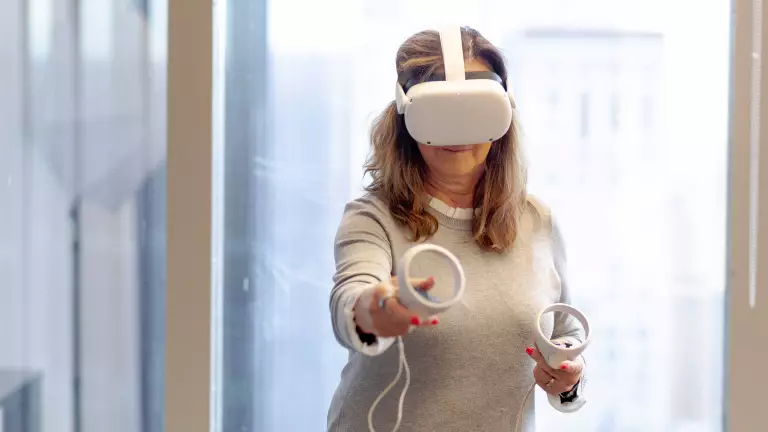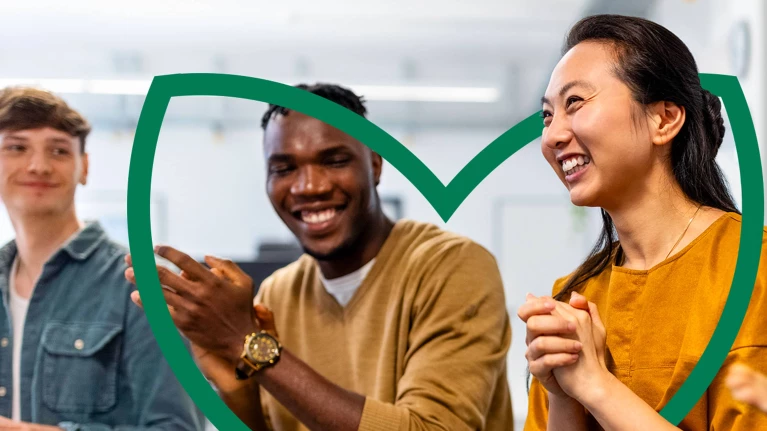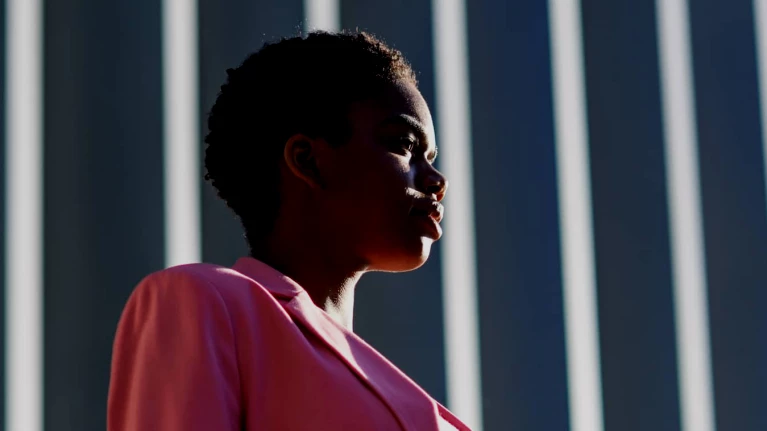Kristi Woolsey is Associate Director and lead for BCG’s Smart Environments Group in our Pittsburgh office. Trained as an architect, Kristi combines her design expertise with her research into digital technologies and human behavior to uncover how physical—and virtual—spaces inform the human experience. We spent an afternoon with her, learning about what sparked her endless curiosity, how it shows up in her work, and how she’s passing down that same passion for exploration to her sons, Django, 11, and Miles, 14.
Here’s an excerpt from that conversation, in Kristi’s words:
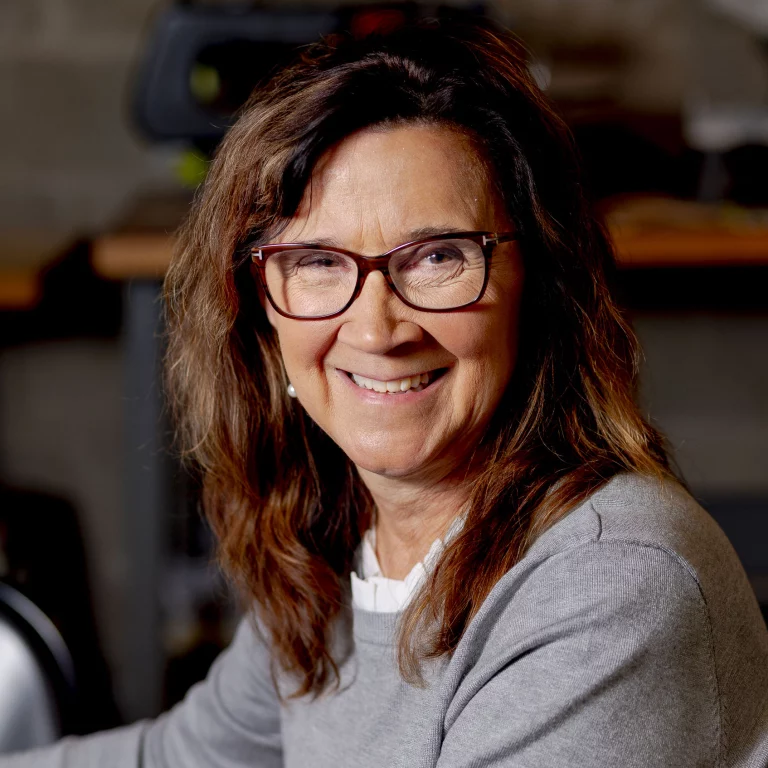
I’m the oldest of five children. My dad was a computer programmer and researching artificial intelligence in the mid-seventies. We had family dinners where my dad would hold up a half a glass of milk and say, "How does the computer know whether I'm saying glass or milk or half full? How do we teach computers to do that?" Those kinds of conversations drove my interest in future thinking and future technologies.
My mom was a teacher, because when it was time for her to go to college, the main career choices for women were nurse, teacher, or secretary. By the time I hit high school, those choices had expanded and she went back to college for accounting.
There were five kids, and each of us had a weeknight to cook dinner because mom was busy with work and school. She said, “I don't care what you cook, but you have to feed the family because I have homework to do.” My sister made macaroni and cheese every Wednesday night. My brother made hamburgers every Friday. My day was Monday because I was the oldest. I would find a recipe and I would go into the pantry with whatever I wanted to cook on my night. I experimented.
That was for all of my years of high school. That really modeled the ability for me to think, you want a different career? go have it! If my mom could do it with five kids, anyone can do it.
This love of adventure and experiencing all of life—that’s been my whole life.
My parents are adventurers. As we grew up, they took us on all kinds of trips. My parents got into long distance bicycling. When my grandfather died, they came into a little bit of money and so they bought seven 10-speed bikes and our family vacation was to bicycle around Vermont. The next year my dad became a scuba instructor and the family went camping in the Virgin Islands so we could snorkel and scuba. The year after that they bought seven backpacks and we hiked across the Grand Canyon. This love of adventure and experiencing all of life—that's been my whole life.
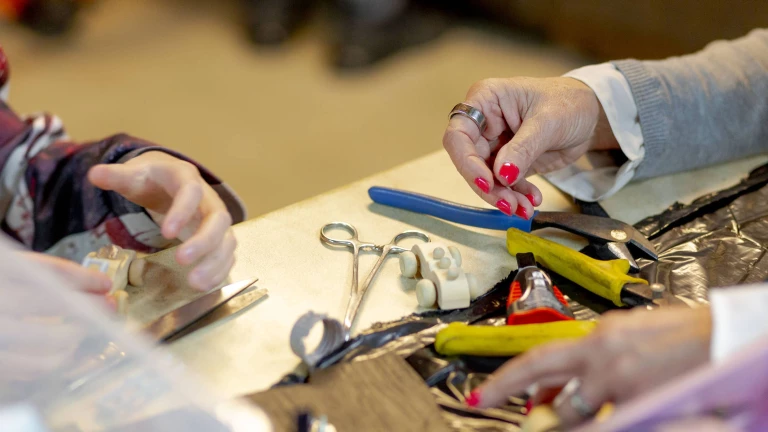
The other thing about my parents, they were so focused. My father is very logical and my mother is a hard-core planner. For instance, I draw quite well and my parents were looking at me happily painting away, taking art lessons, being in the art club and both of them were like, “Oh my goodness, she's going to be an artist, she's going to starve.” There was one architect in my hometown and my parents went to him and said, “Could you please hire our daughter as a summer intern? She can answer the phone, she can babysit your kids. But expose her to something that she can do with her artistic talent that might result in a paycheck.”
And so I went. I worked for this architect over the summer and it was great. By the end of the summer I wanted to take tech drawing, which was an elective in my high school. I wanted to sign up for shop, I wanted to learn to build things. My parents were all for it, but I went to sign up and it turned out it wasn't open to girls. I had to get special permission.
Officially there was only tech drawing I and II, after that I invented an independent study so I could do level III. Sitting in the back of the Latin class, where all the drafting tables were, I would draw on my own, inventing cities and just having a good time drafting.
By the time I got to my senior year, I had a bunch of space in my schedule for electives and the school allowed me to leave school early so I could go work for this architect for credit. So between my parents arranging the internship and my high school electives, I can accurately say that my first job in an architect's office was when I was 15.
When I am an expert, it’s time for me to start learning again.
I graduated from Georgia Tech and then I went back to school and got my second degree from Arizona State University. I had been a teaching assistant during graduate school. It turned out I'm a good teacher, taking very difficult subject matter and dividing it into understandable pieces.
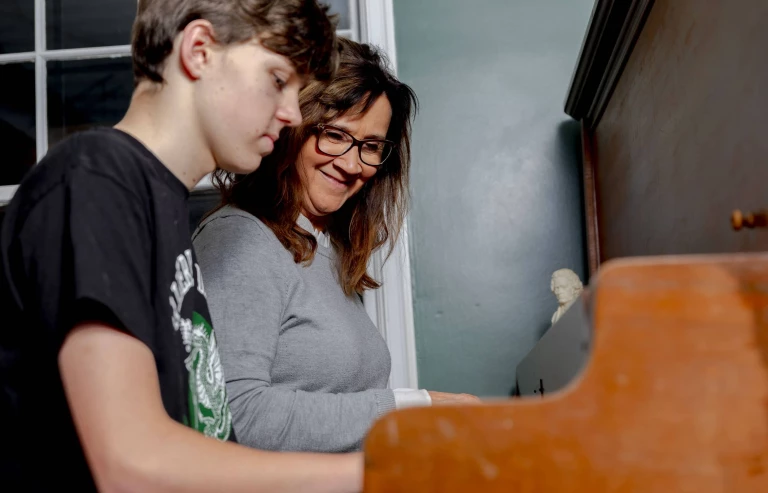
I applied for a permanent faculty position and as part of that, I had to claim a research area. I was interested in behavioral strategy—how physical space, moving through space, engaging with space really begins to inform the human experience and how through that experience, you can connect to business outcomes. There are a lot of architects who are very capable of making stunningly beautiful buildings, but often, you see the picture in the magazine, you're like, “This is amazing!” But then you go there and you walk through and you think, “This is not very good.”
What I didn't know then was that this is the same kind of UX thinking that somebody might do for an app or a browser; I was doing UX in physical space. I taught and did research for six years and then I thought, I don't want to be on my deathbed wondering if I could have been a great architect and never having tried.
I had six years of full-time faculty and then I had another six years of part-time tenure track while I stepped outside and launched a company. I wanted to build the things that I was talking about.
I wanted to do experience-based design. But who's going to pay for that? Companies that will benefit financially from experience-based design: restaurants, hospitality. I really leaned into that but then as the world became more digital, we also started doing experience-based workplace design.
After about 15 years, I was ready to move on from running my own company. I had architects, interior designers, and three construction crews who were building our work. For me, when I really know how to do something, when I'm really good at something, it is time to add to my toolkit. Maybe it was moving 23 times before I graduated high school, maybe my parents hauling me off on various adventures. But when I am an expert, it’s time for me to start learning again.
If you want it, worry less about the how and just on what you want. Stop constraining the solution. Just go for the thing you want.
At that point, my company was running great. I was 42 years old, I had just gotten married for the first time and I thought, is this it? I've done everything I wanted to do. I had launched a business, been published 50-some-odd times. So what else?
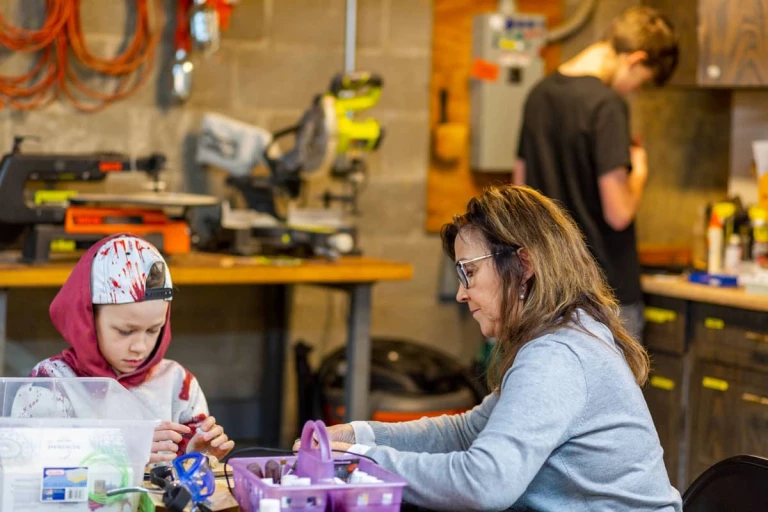
It turned out that the one thing I had not done was have kids. I thought, I'm too old to have kids. Am I? Maybe not, let me do some research. It took six years and a whole lot of money and a lot of tears and emotional ups and downs as yet another fertility round didn’t work. I don't really take no for an answer. Finally, through donor eggs, I had my first kid when I was 48 and my second kid when I was 51.
It was crazy and it was great. At first I thought, donor eggs, no, I want them to be my eggs. But then that didn’t work. And if donor eggs didn't work, I was moving to adoption.
My advice to anybody: if you want it, worry less about the how and focus on what you want. Stop constraining the solution. Just go for the thing you want.
I love the fact that my kids can be involved in my life, in my whole life. Now that I spend much of my days in the metaverse, my kids say, “Can I come to work with you?” They especially love the BCG snacks. We had our annual Santa Christmas party that is always for families and I had a conflict last year, but my kids, who are now 14 and 11, wanted to go to the BCG party even if I wouldn't be there. They love that I work at BCG!
It took me so long and it was so much effort to have these kids—and I really love my job—so integrating my family and my job is an amazing gift.
